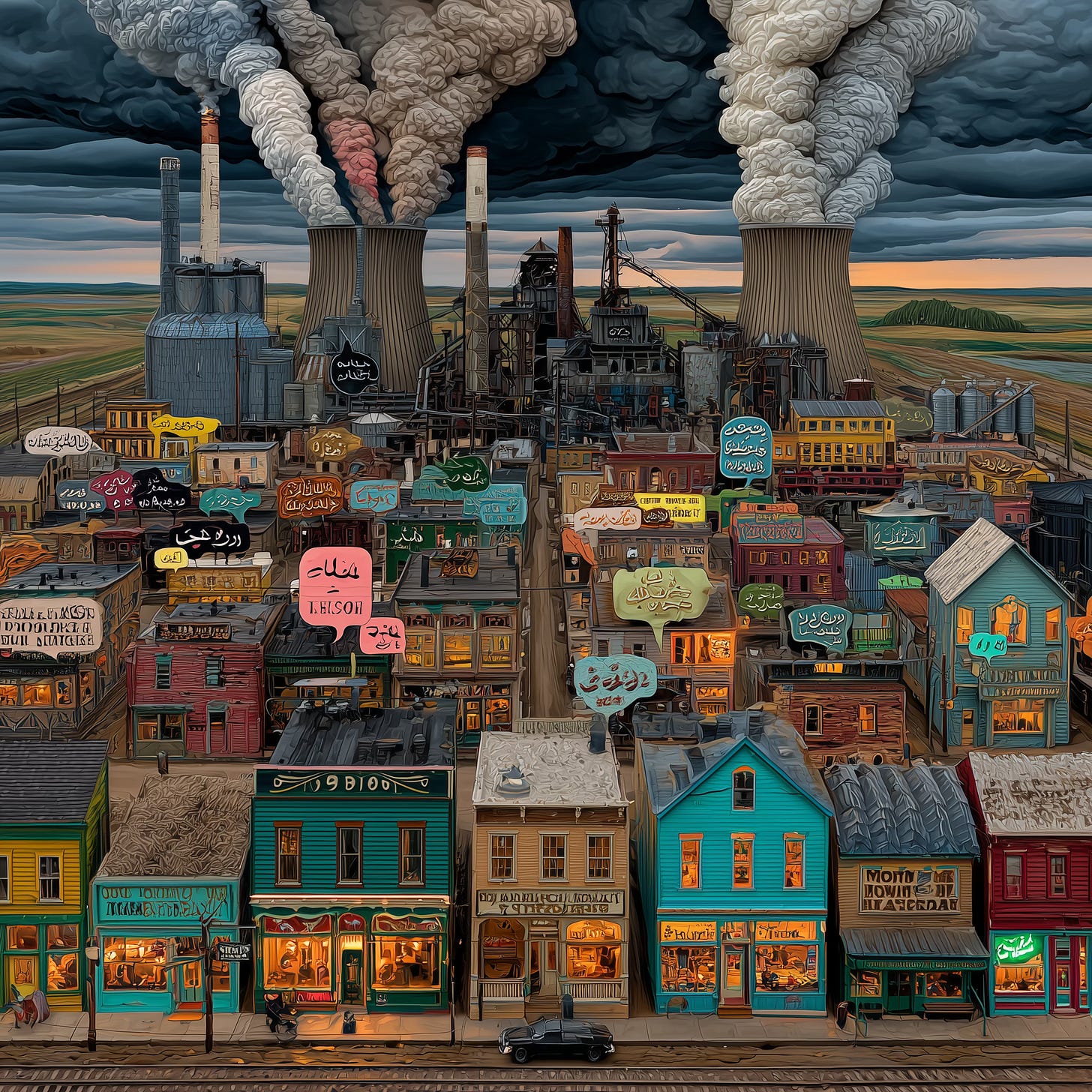Refugee Prairie
Meatpacking Towns as Port Cities
Garden City, Kansas, sits 200 miles from the nearest interstate, surrounded by feedlots and wheat fields, yet its public schools enroll students from dozens of countries speaking multiple languages. This town of roughly 28,000 has become an unlikely port of entry, not at any border but at the intersection of global displacement and industrial meat production.
Tyson Foods operates a massive beef processing plant here that slaughters thousands of cattle daily. The plant needs thousands of workers across multiple shifts. For decades now, those workers have arrived from Somalia, Myanmar, Guatemala, Honduras, Ethiopia, and Vietnam, turning this landlocked prairie town into one of the most diverse communities per capita in America.
The pattern repeats across the prairie. Columbus, Nebraska. Storm Lake, Iowa. Worthington, Minnesota. Lexington, Nebraska, where the population shifted from nearly all white in 1990 to majority Latino today.
These towns share three characteristics: massive meat processing facilities, geographic isolation that keeps labor organizing difficult, and populations that have been reshaped entirely by refugee resettlement and immigration.
They function as ports not because of water but because of wages, processing human displacement through the same industrial efficiency that processes animal protein.



